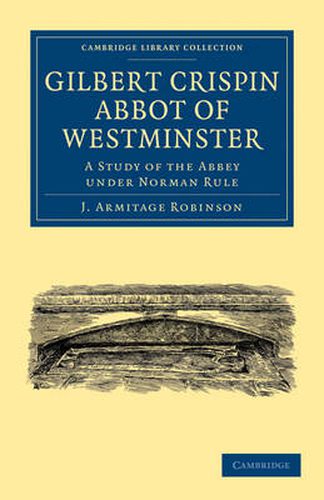Readings Newsletter
Become a Readings Member to make your shopping experience even easier.
Sign in or sign up for free!
You’re not far away from qualifying for FREE standard shipping within Australia
You’ve qualified for FREE standard shipping within Australia
The cart is loading…






Gilbert Crispin (c. 1045-1117/18), fourth abbot of Westminster Abbey, was a scion of an important Norman family. Trained at Bec under St Anselm, later archbishop of Canterbury, he was a noted scholar and theologian. Under his rule, Westminster Abbey began to expand physically and grow in importance, making full play of its position as the chosen burial site of Edward the Confessor. The necessity to raise funds for the building work probably led to Crispin’s association with the London Jewish community, and this was to inspire his most important theological work, Disputation with a Jew. In this 1911 book, J. Robinson Armitage, then dean of Westminster, mines the abbey archives to write both a biography and a discussion of Crispin’s thirty-year administration of Westminster. He also includes the texts of all Crispin’s known writings, together with a selection of charters. A significant work on a hitherto neglected Anglo-Norman churchman.
$9.00 standard shipping within Australia
FREE standard shipping within Australia for orders over $100.00
Express & International shipping calculated at checkout
Gilbert Crispin (c. 1045-1117/18), fourth abbot of Westminster Abbey, was a scion of an important Norman family. Trained at Bec under St Anselm, later archbishop of Canterbury, he was a noted scholar and theologian. Under his rule, Westminster Abbey began to expand physically and grow in importance, making full play of its position as the chosen burial site of Edward the Confessor. The necessity to raise funds for the building work probably led to Crispin’s association with the London Jewish community, and this was to inspire his most important theological work, Disputation with a Jew. In this 1911 book, J. Robinson Armitage, then dean of Westminster, mines the abbey archives to write both a biography and a discussion of Crispin’s thirty-year administration of Westminster. He also includes the texts of all Crispin’s known writings, together with a selection of charters. A significant work on a hitherto neglected Anglo-Norman churchman.